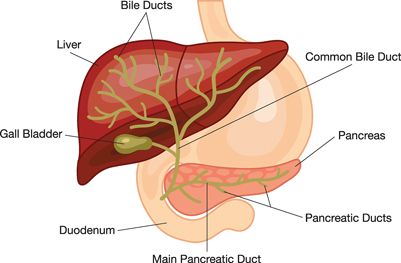ERCP

ERCP
Endoscopic Retrograde Cholangiopancreatography (ERCP) is a specialized medical procedure used to diagnose and treat conditions affecting the bile ducts, gallbladder, pancreas, and liver. Combining endoscopy and fluoroscopy, ERCP allows doctors to visualize and intervene in the biliary and pancreatic duct systems.
During the procedure, a flexible endoscope is inserted through the mouth, passing through the esophagus and stomach into the duodenum. A small catheter is then guided into the bile or pancreatic ducts, and contrast dye is injected to enhance imaging on X-rays. This enables the identification of blockages, strictures, stones, tumors, or other abnormalities.
ERCP is both diagnostic and therapeutic. It is commonly used to remove gallstones from the bile ducts, place stents to relieve duct obstructions, or take tissue biopsies for further analysis. It is also useful in managing complications from gallbladder surgery or treating infections like cholangitis.
Preparation involves fasting for several hours before the procedure, and patients are typically sedated for comfort. While ERCP is generally safe, potential risks include pancreatitis, bleeding, infection, or perforation of the digestive tract. These complications are rare but require prompt medical attention if they occur.
ERCP has become a critical tool in managing biliary and pancreatic disorders, offering a minimally invasive alternative to traditional surgeries. Advances in technology, such as high-definition endoscopes and therapeutic techniques, have further improved its safety and efficacy.
The procedure is particularly beneficial for patients with jaundice, unexplained abdominal pain, or abnormal imaging findings related to the pancreas or bile ducts. With its ability to combine diagnosis and treatment in a single session, ERCP plays a pivotal role in modern gastroenterology, ensuring effective management of complex hepatobiliary conditions.
- Preparation typically involves:
- Fasting for several hours before the procedure.
- Adjusting or temporarily stopping certain medications as directed by your doctor.
- Discussing any allergies or medical conditions with your doctor.
During the procedure:
- You will receive sedation to help you relax.
- An endoscope is inserted through your mouth, down your esophagus, and into your duodenum (the first part of the small intestine).
- A small tube is passed through the endoscope into the bile or pancreatic ducts.
- Contrast dye is injected, and X-rays are taken to visualize the ducts.
- If necessary, interventions such as stone removal, stent placement, or biopsies are performed.
While some discomfort or pressure may be felt, ERCP is generally not painful due to the sedation.
The procedure typically takes 30 to 60 minutes, but it can take longer depending on the complexity of the case.
After the procedure:
- You will be monitored in a recovery area until the sedation wears off.
- You may experience mild abdominal discomfort or nausea.
- You will need someone to drive you home.
- You will be given post procedure instructions.

